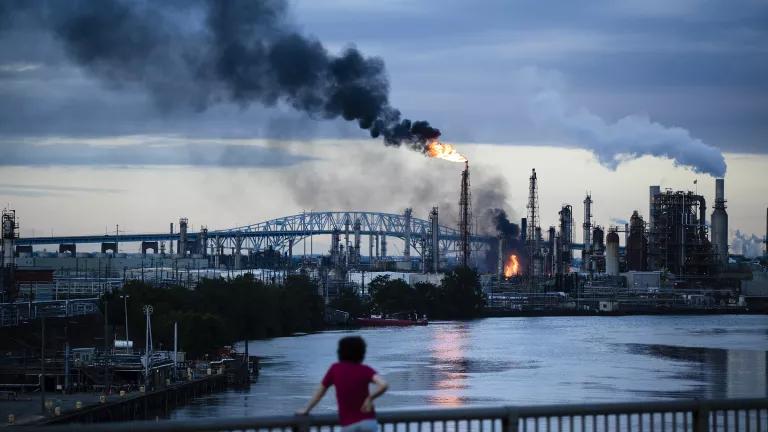Arctic Refuge Is Top Priority as Congress Returns
In its first days back from recess, Congress will vote on H.R. 1146 to prevent destructive oil and gas development in the Arctic National Wildlife Refuge. The floor vote comes at a pivotal point: The Trump administration is expected to finalize its plans for oil and gas leasing in the Refuge as soon as this week.

The Arctic Refuge is one the last truly wild places left on Earth. The Trump administration wants to hand it over to polluters.
In its first days back from a six-week August recess, Congress is prioritizing action to protect the Arctic National Wildlife Refuge—its Indigenous people, fragile climate, unparalleled public lands, and imperiled wildlife—from destructive oil and gas development.
The U.S. House of Representatives is set to vote on critical legislation, the Arctic Cultural and Coastal Plain Protection Act (H.R. 1146), which would stop the Trump administration’s dangerous scheme to allow the industrialization of the Arctic Refuge. Led by Reps. Jared Huffman (D-CA) and Brian Fitzpatrick (R-PA), H.R. 1146 would repeal a provision in the 2017 GOP Tax Bill mandating oil and gas lease sales in the Refuge’s coastal plain.
The House floor vote comes at a pivotal point in the fight to save the Refuge: The Trump administration is expected to release the final Environmental Impact Statement for oil and gas leasing as soon as this week, setting off a mandatory 30-day waiting period, after which the Arctic Refuge will be open for bidding.
The Trump administration’s moves to open these lands to oil and gas development fly in the face of public opinion. Handing one of America’s last wild places over to polluters is also:
- Fiscally irresponsible: It has long been known that drilling proponents grossly overestimated the revenues that would be generated by an Arctic Refuge leasing program. Oil and gas development on the Refuge’s coastal plain may yield as little as $45 million— a far cry from the $1.8 billion the Trump administration promised during the 2017 tax bill fight—according to a recent New York Times analysis of prior lease sales.
- Contrary to science: At a time when the Arctic is warming twice as fast as the global average, the Trump administration has barreled ahead with a flawed environmental review process that flatly ignores the serious biological, cultural and climate impacts that fossil fuel extraction will have in the rapidly warming Arctic. As revealed in a recent Politico exposé, the administration has even gone so far as to alter or disregard the work of career scientists to underplay the impact of oil and gas development on the coastal plain.
- Dangerous for our climate: Our public lands are an essential part of the solution to the climate crisis, as the Intergovernmental Panel on Climate Change emphasized in a report released in August. Yet instead of acknowledging this, the Trump administration is rushing to move forward with resource extraction in Refuge that will yield more carbon pollution. Drilling in the Refuge would compound the climate harms that Arctic communities and ecosystems are already facing every day.
- An affront to Indigenous rights: The administration’s efforts to drill in the Arctic Refuge stand in complete disregard of the human rights of the Gwich’in people, who consider the coastal plain sacred, and whose culture and survival depend on its continued protection.
This legislation is the only permanent way to protect the Arctic Refuge—its native people, irreplaceable public lands, iconic wildlife, and fragile climate—from irreversible harm, given the 2017 tax bill mandate. By prioritizing this vote on H.R. 1146, House Democrats are sending a strong signal to the two-thirds of Americans who oppose drilling in the Arctic Refuge that they are committed to winning this fight.

H.R. 1146 represents the only permanent way to protect the Arctic Refuge—its native people, irreplaceable public lands, iconic wildlife, and fragile climate—from irreversible harm.



